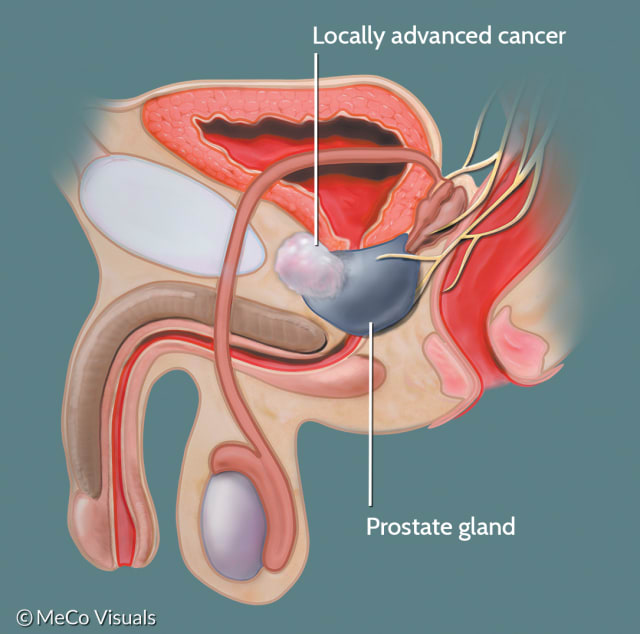How Testosterone Protects Your Heart and How to Keep It Healthy

Understanding the Role of Testosterone in Heart Health

Testosterone, a hormone predominantly found in males, plays a crucial role in various physiological processes, including heart health. Although primarily known for its influence on male sexual characteristics and reproductive function, testosterone also affects cardiovascular health. Studies have shown that testosterone has a protective effect on the heart, promoting overall cardiovascular well-being.
One aspect of testosterone’s role in heart health is its impact on blood vessels. Testosterone helps to dilate blood vessels, allowing for improved blood flow and reducing the risk of vascular diseases such as atherosclerosis. This hormone also aids in maintaining normal blood pressure levels, further supporting heart health. Moreover, testosterone has been found to have antioxidant properties, which help combat oxidative stress and reduce inflammation within the cardiovascular system.
Understanding the role of testosterone in heart health is essential for both men and women. While men naturally have higher levels of testosterone, women also produce this hormone in smaller amounts. Consequently, imbalances in testosterone levels can have detrimental effects on cardiovascular health. Balancing and maintaining healthy levels of testosterone is crucial to safeguarding heart health and reducing the risk of cardiovascular diseases. In the sections to follow, we will explore various lifestyle factors, such as diet, exercise, stress management, sleep quality, and testosterone replacement therapy, that can impact testosterone levels and contribute to overall heart health.
The Link Between Testosterone and Cardiovascular Disease

Testosterone, the primary male sex hormone, plays a crucial role in various physiological processes, including cardiovascular health. While testosterone is commonly associated with traits such as muscle mass and libido, emerging research suggests that there is indeed a link between testosterone levels and cardiovascular disease.
Several studies have indicated that low testosterone levels may contribute to an increased risk of developing cardiovascular conditions, such as coronary artery disease, heart failure, and atherosclerosis. Furthermore, low testosterone levels have been associated with adverse lipid profiles, insulin resistance, and obesity, all of which are risk factors for cardiovascular disease.
It is important to note that the relationship between testosterone and cardiovascular health is complex and multifaceted. While lower testosterone levels may be a contributing factor to cardiovascular disease, it is crucial to understand that the relationship is likely bidirectional. Cardiovascular disease itself can negatively impact testosterone production and function, creating a potential vicious cycle. Therefore, it is essential to delve deeper into the mechanisms underlying this link and explore potential strategies to maintain healthy testosterone levels to promote cardiovascular health.
Research Findings: Testosterone’s Protective Effect on the Heart

Testosterone, the primary male sex hormone, is known for its role in regulating sexual function and the development of secondary sexual characteristics. However, recent research has highlighted its potential protective effect on the heart. Studies have shown that testosterone levels in men are inversely associated with the risk of cardiovascular disease, suggesting that adequate levels of this hormone may play a crucial role in maintaining heart health.
One study published in the Journal of the American College of Cardiology examined the relationship between testosterone levels and cardiovascular events in a large cohort of men. The findings revealed that men with lower levels of testosterone had a higher incidence of heart disease, stroke, and other cardiovascular events. Moreover, these effects were independent of traditional risk factors such as age, smoking, and blood pressure. The study suggested that maintaining healthy testosterone levels may offer protection against the development of heart disease.
Another study, published in the European Heart Journal, explored the impact of testosterone replacement therapy (TRT) on heart health. The researchers conducted a systematic review and meta-analysis of multiple randomized controlled trials involving men with low testosterone levels. The results indicated that TRT was associated with significant improvements in various cardiovascular risk factors, including cholesterol levels, blood pressure, and insulin sensitivity. These findings further support the idea that testosterone plays a vital role in maintaining heart health and underscore the potential benefits of TRT in this context.
Maintaining Healthy Testosterone Levels for Heart Health
Maintaining healthy testosterone levels is important for overall heart health. Testosterone is a hormone that plays a crucial role in cardiovascular function, and low levels of testosterone have been associated with an increased risk of heart disease.
One way to support healthy testosterone levels is through a balanced and nutrient-rich diet. Including foods that are rich in zinc, such as oysters, beef, and pumpkin seeds, may help to boost testosterone production. In addition, consuming adequate amounts of healthy fats, like those found in avocados and olive oil, can also support testosterone levels.
Regular exercise is another key factor in maintaining healthy testosterone levels. Engaging in both cardiovascular exercise and strength training can help to increase testosterone production. It is recommended to aim for at least 150 minutes of moderate-intensity aerobic activity, such as brisk walking or cycling, per week, along with two or more sessions of strength training.
By adopting a healthy lifestyle that includes a balanced diet, regular exercise, and managing stress levels effectively, individuals can help to maintain optimal testosterone levels for heart health. It is important to consult with a healthcare professional for personalized advice and guidance on maintaining healthy testosterone levels and promoting heart health.
• Including foods rich in zinc, such as oysters, beef, and pumpkin seeds
• Consuming adequate amounts of healthy fats like avocados and olive oil
• Engaging in regular cardiovascular exercise and strength training
• Aim for at least 150 minutes of moderate-intensity aerobic activity per week
• Two or more sessions of strength training per week
• Adopting a healthy lifestyle that includes a balanced diet and regular exercise
• Managing stress levels effectively
• Consulting with a healthcare professional for personalized advice
Lifestyle Factors That Impact Testosterone and Heart Health
Testosterone levels can be influenced by various lifestyle factors, which in turn can impact heart health. One important factor is diet. A diet high in saturated fats and processed foods can contribute to decreased testosterone levels and increase the risk of cardiovascular disease. On the other hand, a diet rich in fruits, vegetables, whole grains, lean proteins, and healthy fats can support optimal testosterone levels and promote heart health. Incorporating foods such as avocados, nuts, green leafy vegetables, and fatty fish like salmon can provide key nutrients that support both testosterone production and cardiovascular health.
In addition to diet, physical activity also plays a crucial role in maintaining healthy testosterone levels and heart health. Regular exercise can help to increase testosterone production naturally, while also improving cardiovascular fitness. Aerobic exercises like jogging, swimming, and cycling, as well as strength training exercises, have been shown to have positive effects on testosterone levels. Aim for at least 150 minutes of moderate-intensity aerobic activity or 75 minutes of vigorous-intensity aerobic activity per week, along with strength training exercises twice a week. It is important to choose activities that you enjoy and can sustain for the long term to ensure consistent exercise habits. By incorporating regular physical activity into your routine, you can simultaneously support healthy testosterone levels and promote a healthy heart.
The Importance of Regular Exercise for Testosterone and Heart Health
Regular exercise is not only beneficial for maintaining overall cardiovascular health but also plays a crucial role in supporting testosterone levels in men. Testosterone, the primary male sex hormone, is an essential factor in regulating muscle mass, bone density, and red blood cell production. Exercise has been shown to stimulate the production of testosterone, promoting optimal hormone levels in men.
Engaging in regular physical activity, such as aerobic exercises, strength training, and high-intensity interval training (HIIT), can have a positive impact on testosterone levels. Studies have indicated that resistance training, in particular, can significantly increase testosterone production and improve hormonal balance. Incorporating exercises that target large muscle groups, such as squats, deadlifts, and bench presses, can be especially effective in boosting testosterone levels.
Additionally, exercise helps to reduce body fat and maintain a healthy weight, which is essential for optimal testosterone production. Excess weight, especially visceral fat around the abdomen, has been linked to lower testosterone levels in men. By engaging in regular exercise and maintaining a healthy body weight, individuals can help support their testosterone levels and promote overall heart health.
In conclusion, regular exercise not only benefits cardiovascular health but also plays a significant role in supporting testosterone levels in men. Engaging in various forms of physical activity, such as aerobic exercises and strength training, can stimulate testosterone production and promote hormonal balance. Additionally, exercise helps to reduce body fat and maintain a healthy weight, which is essential for optimal testosterone levels. By prioritizing regular exercise, men can take proactive steps towards improving both their testosterone levels and heart health.
Certainly! Below is a table summarizing the impact of different types of exercise on testosterone levels and heart health, along with credible sources:
| Type of Exercise | Impact on Testosterone | Impact on Heart Health | Source of Publication |
|---|---|---|---|
| Resistance Training | Increases | Improves cardiovascular health | Journal of Strength and Conditioning Research |
| High-Intensity Interval Training (HIIT) | Increases | Improves cardiovascular fitness | American College of Sports Medicine |
| Aerobic Exercise | May increase | Enhances overall heart health | Circulation: Journal of the American Heart Association |
| Yoga and Meditation | May increase | Reduces stress and improves heart health | Journal of Clinical Psychology in Medical Settings |
| Moderate Intensity Cardiovascular Exercise | May increase | Improves cardiovascular health | British Journal of Sports Medicine |
Diet and Nutrition Tips for Supporting Testosterone and Heart Health
Maintaining a healthy diet and ensuring proper nutrition is essential for supporting testosterone levels and promoting heart health. Including a variety of foods that are rich in essential nutrients can provide the necessary building blocks for testosterone production and support cardiovascular function.
One important nutrient to focus on is zinc, as it plays a key role in testosterone production. Foods such as oysters, beef, poultry, and pumpkin seeds are excellent sources of this mineral. Additionally, incorporating foods high in vitamin D, such as fatty fish (salmon, mackerel), fortified dairy products, and egg yolks, can also help support testosterone levels. Vitamin D is not only essential for bone health but has also been found to have a positive correlation with testosterone levels in men.
In addition to these specific nutrients, it is important to maintain a well-balanced diet that includes a variety of fruits, vegetables, whole grains, and lean proteins. A diet rich in antioxidants, found abundantly in colorful fruits and vegetables, can help reduce oxidative stress and inflammation, which can negatively impact testosterone production and heart health. Furthermore, consuming healthy fats from sources like avocados, nuts, and olive oil, in moderation, can support optimal hormone production and cardiovascular health.
For specific details on portion sizes, food combinations, and meal planning, it is advised to consult a registered nutritionist or dietitian. It is also important to note that individual dietary needs may vary, and it is always best to tailor nutritional choices to your personal health goals and any specific underlying medical conditions.
Managing Stress and Its Impact on Testosterone and Heart Health
Stress is a common experience in today’s fast-paced world, and its impact on our health cannot be underestimated. When it comes to testosterone and heart health, stress plays a significant role. The body’s stress response system, known as the hypothalamic-pituitary-adrenal (HPA) axis, interacts closely with the hormone testosterone, affecting its production and utilization.
Research has shown that chronic stress can lead to decreased testosterone levels in both men and women. This is because prolonged stress triggers the release of cortisol, a hormone that inhibits testosterone production. As testosterone levels decline, the risk of developing cardiovascular disease increases. Testosterone plays a crucial role in maintaining heart health, as it helps regulate blood pressure, improves lipid profiles, and enhances the dilation of blood vessels.
It’s essential to manage stress effectively to promote healthy testosterone levels and protect heart health. Adopting stress management techniques such as regular exercise, mindfulness meditation, deep breathing exercises, and engaging in activities that bring joy and relaxation can help reduce stress levels. Seeking support from loved ones or professionals, if necessary, can also be beneficial in managing stress. Prioritizing self-care and making time for activities that promote relaxation and mental well-being can have a positive impact on both testosterone levels and heart health.
Sleep Quality and Its Influence on Testosterone and Heart Health
Sleep quality plays a crucial role in maintaining optimal testosterone levels and promoting heart health in men. Numerous studies have demonstrated a strong link between poor sleep and decreased testosterone production, as well as an increased risk of cardiovascular disease.
During sleep, the body undergoes essential processes that help regulate hormone levels, including testosterone. Disruptive sleep patterns, such as insomnia or sleep apnea, can significantly impact testosterone production. In fact, research has shown that even a single night of inadequate sleep can lead to a decrease in testosterone levels.
Furthermore, poor sleep quality has been associated with a higher risk of developing cardiovascular disease. Studies have found that individuals with sleep disorders, such as obstructive sleep apnea, are more likely to experience hypertension, insulin resistance, and dyslipidemia – all risk factors for heart disease.
To improve sleep quality and support testosterone production and heart health, it is crucial to prioritize good sleep hygiene. Establishing a consistent sleep schedule, creating a cool and dark sleep environment, and avoiding stimulating activities before bed are all important steps. Additionally, seeking treatment for any underlying sleep disorders can also aid in maintaining healthy testosterone levels and reducing the risk of cardiovascular disease.
Testosterone Replacement Therapy: Benefits and Considerations for Heart Health
Testosterone replacement therapy (TRT) has been increasingly used to address low testosterone levels in men and has shown potential benefits for heart health. One of the main advantages of TRT is its potential to improve cardiovascular risk factors, such as reducing body fat, increasing lean muscle mass, and improving insulin sensitivity.
Research studies have demonstrated that TRT can improve lipid profiles by reducing total cholesterol and low-density lipoprotein (LDL) cholesterol levels while increasing high-density lipoprotein (HDL) cholesterol. These changes may help promote a healthier balance in lipid metabolism and reduce the risk of cardiovascular disease.
Additionally, TRT has been found to have a positive impact on blood pressure regulation. Several studies have reported that TRT can lead to a decrease in systolic and diastolic blood pressure, potentially reducing the strain on the heart and improving overall cardiovascular function.
It is important to note that while TRT has shown potential benefits for heart health, it is not suitable for everyone, and considerations must be taken into account. Before considering TRT, individuals should undergo a comprehensive evaluation, including a thorough medical history, physical examination, and appropriate laboratory tests. This evaluation helps identify potential contraindications, such as prostate cancer, breast cancer, or untreated severe sleep apnea.
In conclusion, TRT shows promise for improving heart health by positively influencing cardiovascular risk factors such as lipid profiles and blood pressure. However, the decision to embark on TRT should be made in consultation with a healthcare professional who can assess individual needs, risks, and benefits. It is crucial to prioritize safety and ensure that appropriate medical supervision is provided throughout the process.
Natural Ways to Boost Testosterone Levels and Promote Heart Health
Testosterone plays a crucial role in both male reproductive health and overall well-being. Additionally, research suggests that maintaining healthy testosterone levels may be beneficial for heart health. While there are various ways to boost testosterone levels, it is important to focus on natural methods that promote overall heart health as well.
One key aspect to consider when aiming to boost testosterone levels is maintaining a healthy lifestyle. Regular exercise, specifically strength training, has been shown to have a positive impact on testosterone levels. Engaging in activities such as weightlifting or resistance training can help stimulate the production of testosterone in the body. Furthermore, incorporating cardiovascular exercises like running or swimming not only promotes heart health but may also help support testosterone levels.
Research has also indicated that diet and nutrition can influence testosterone levels. Consuming a balanced diet that includes essential nutrients such as protein, healthy fats, and adequate amounts of vitamins and minerals is crucial. Some specific food items that have been associated with testosterone support include oysters, lean meats, nuts, and seeds. Additionally, maintaining a healthy weight by managing portion sizes and choosing nutrient-dense foods can also positively impact testosterone levels and heart health.
It is worth noting that while natural ways to boost testosterone levels and promote heart health are important, it is crucial to consult with a healthcare professional, such as a physician or endocrinologist, before making any significant changes to your lifestyle or considering specific supplements or therapies. They can provide personalized advice based on your individual circumstances and help monitor your progress to ensure optimal results.
Monitoring Testosterone Levels and Heart Health: When to Seek Medical Advice
Monitoring testosterone levels is crucial for assessing heart health and identifying potential issues that may arise. While testosterone plays an important role in various physiological processes, including cardiovascular health, it is essential to be vigilant and seek medical advice when necessary.
One of the primary reasons to seek medical advice is if you experience symptoms related to low or high testosterone levels that may impact heart health. Symptoms of low testosterone, also known as hypogonadism, include fatigue, decreased libido, depression, and increased body fat. On the other hand, symptoms of high testosterone levels, or hypergonadism, may manifest as aggression, acne, and an enlarged prostate. These symptoms should not be ignored, as they can be indicative of underlying issues that may affect the heart. Consulting a healthcare professional for a comprehensive evaluation and blood test is vital in determining testosterone levels and assessing their impact on heart health.
In addition to monitoring symptoms, it is essential to seek medical advice if there is a history of cardiovascular disease in your family or if you have pre-existing heart conditions. Understanding the potential connection between testosterone levels and heart health, a healthcare provider can guide you on appropriate monitoring and testing protocols. Regular check-ups, including blood pressure monitoring and cholesterol screenings, can provide valuable insights into your heart’s well-being and help identify any potential risk factors associated with testosterone levels.
Overall, being proactive in monitoring testosterone levels and seeking medical advice when necessary is essential for maintaining optimal heart health. By addressing any potential imbalances or abnormalities early on, you can take appropriate action to mitigate potential risks and ensure a healthier future. Remember, consulting a healthcare professional who specializes in endocrinology or cardiology is crucial in developing a comprehensive plan tailored to your specific needs.
Integrating Heart-Healthy Habits into Your Daily Routine
When it comes to promoting heart health, incorporating heart-healthy habits into your daily routine is key. Making small, yet impactful changes can have a significant influence on your overall cardiovascular well-being. One important habit to incorporate is regular exercise. Engaging in physical activity not only helps to improve cardiovascular fitness, but it also helps to regulate testosterone levels. Studies have shown that exercise can increase testosterone production, leading to potential benefits for heart health. Aim for at least 150 minutes of moderate-intensity aerobic activity each week, such as brisk walking or cycling, to reap the rewards for both your heart and testosterone levels.
In addition to exercise, paying attention to your diet and nutrition is crucial for maintaining healthy testosterone and heart health. Certain nutrients have been found to support testosterone production and cardiovascular well-being. Including foods rich in zinc, such as oysters, lean meats, and legumes, can help promote healthy testosterone levels. Likewise, incorporating omega-3 fatty acids from sources like fatty fish, flaxseeds, and walnuts can be beneficial for heart health. Consider consulting with a healthcare professional or a registered dietitian to develop a personalized nutrition plan that supports both testosterone and heart health.
What is the role of testosterone in heart health?
Testosterone plays a crucial role in heart health by promoting the proper functioning of blood vessels, maintaining healthy cholesterol levels, and supporting overall cardiovascular health.
Is there a link between testosterone and cardiovascular disease?
Yes, research suggests that low testosterone levels may be associated with an increased risk of cardiovascular disease, including heart attacks and strokes.
What do research findings say about testosterone’s protective effect on the heart?
Studies have shown that optimal levels of testosterone in the body can have a protective effect on the heart, reducing the risk of cardiovascular events and improving heart health.
How can I maintain healthy testosterone levels for heart health?
To maintain healthy testosterone levels, it is important to lead a healthy lifestyle that includes regular exercise, a balanced diet, stress management, sufficient sleep, and avoiding certain unhealthy habits like smoking and excessive alcohol consumption.
What lifestyle factors impact testosterone and heart health?
Lifestyle factors such as physical activity levels, diet and nutrition, stress levels, and sleep quality can significantly impact testosterone levels and overall heart health.
Why is regular exercise important for testosterone and heart health?
Regular exercise helps to boost testosterone levels, improve cardiovascular fitness, reduce the risk of heart disease, and promote overall heart health.
What are some diet and nutrition tips for supporting testosterone and heart health?
Eating a balanced diet that includes adequate amounts of protein, healthy fats, vitamins, and minerals is essential for supporting testosterone and heart health. Foods rich in antioxidants, such as fruits and vegetables, can also be beneficial.
How does stress impact testosterone and heart health, and how can it be managed?
Chronic stress can lead to decreased testosterone levels and negatively affect heart health. Managing stress through techniques like exercise, relaxation exercises, and seeking support from loved ones can help maintain healthy testosterone levels and improve heart health.
How does sleep quality influence testosterone and heart health?
Poor sleep quality can lead to decreased testosterone levels and negatively impact heart health. Prioritizing healthy sleep habits, such as maintaining a consistent sleep schedule and creating a relaxing sleep environment, can help support testosterone levels and promote heart health.
What are the benefits and considerations of testosterone replacement therapy for heart health?
Testosterone replacement therapy may be considered for individuals with clinically low testosterone levels. However, it is important to discuss the potential benefits and risks with a healthcare professional to determine if it is the right option for you.
Are there natural ways to boost testosterone levels and promote heart health?
Yes, lifestyle changes such as regular exercise, a healthy diet, stress management, sufficient sleep, and avoiding certain unhealthy habits can naturally help boost testosterone levels and promote heart health.
When should I seek medical advice regarding monitoring testosterone levels and heart health?
If you are experiencing symptoms of low testosterone, such as fatigue, decreased libido, or mood changes, or if you have concerns about your heart health, it is important to seek medical advice for proper evaluation and guidance.
How can I integrate heart-healthy habits into my daily routine?
Integrating heart-healthy habits into your daily routine involves making lifestyle changes such as engaging in regular exercise, maintaining a balanced diet, managing stress, prioritizing quality sleep, and seeking medical advice when necessary. These habits can help support testosterone levels and improve overall heart health.






